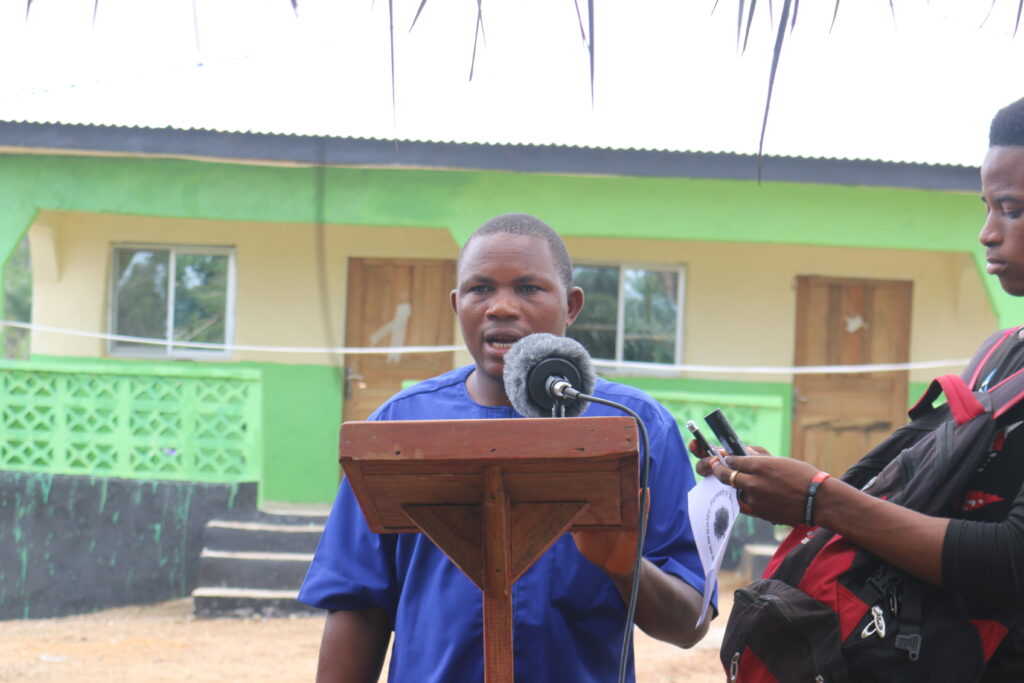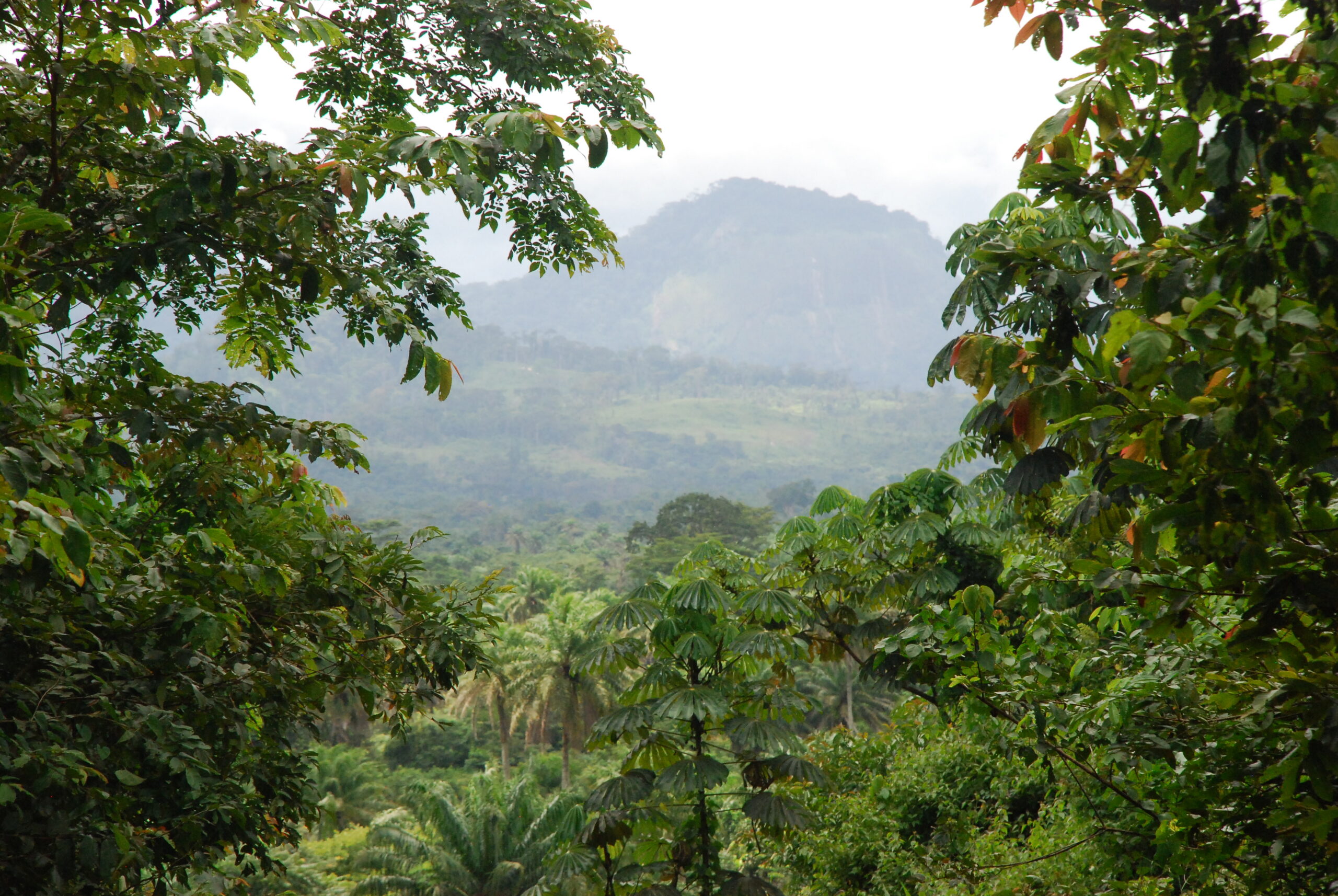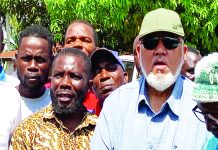Top: Liberia’s proposed memorandum of understanding (MoU) with Blue Carbon of the United Arab Emirates targets areas in Lofa County, which hosts logging agreements. The DayLight/James Harding Giahyue
By Emmanuel Sherman
MONROVIA – Forest communities across the country have shown reluctance over Liberia’s negotiation with UAE-based Blue Carbon fearing it would fail them like logging contracts.
Blue Carbon, owned by a member of the Royal family of the United Arab Emirates, signed a carbon credit memorandum of understanding (MoU) in March with the Liberian government.
The deal intends to cover over one million hectares of forestlands in River Cess, Sinoe, Gbarpolu, Lofa and Margibi, places that have had bad experiences with logging contracts.
“We are already challenged with [logging] that has a legal framework,” says Andrew Zelemen, the national facilitator of the National Union of Community Forest Development Committee (NUCFDC), comprising some 500 logging-affected communities.
“Our fear is the actual benefit community should get may not get because we don’t know how it is and how it will be,” adds Zelemen.
Logging companies began signing contracts with forest communities over 15 years ago, a major component of Liberia’s forestry reform.
But most contracts have failed, with companies owing huge sums of land rentals and harvesting fees. They have failed to start or complete mandatory projects.
Matthew Walley, an affected community leader of a 57,287-hectare forest that the proposed agreement targets, questions the proposed MoU’s payment method.
“If I get 57,000 hectares preserved as carbon area, what will be the calculation? How will it be done? Through what kind of benefit-sharing mechanism,” says Walley.
“The government can’t just come and say this place is declared as a carbon area. We will not accept it,” says Walley.

Blue Carbon intends to avoid the pitfall of logging, according to the draft agreement, seen by The DayLight. Communities stand to receive a credit royalty of 10 percent of the value of the carbon credits the forest will generate.
It proposes a payment scheme through a five-person committee, two each from the community and the government and one from Blue Carbon.
“Community will directly benefit from a dedicated Account, not the consolidated account,” says Adams Manobah, the Chairman of Liberia Land Authority (LLA). “And that benefit will go directly into their own account that will be controlled by the people themselves.”
The International community has criticized the proposed payment mode for being vague, according to a document seen by The DayLight.
But communities should not depend on Blue Carbon’s contract for their shares of carbon credits, according to Zelemen. There should be a “roadmap” for carbon trading.
In the roadmap, develop a legal framework that will guide the process of carbon trade like we have law guiding timber trade,” says Zelemen. NGOs have made the same call.
Both Blue Carbon and Liberia want the deal to help their climate targets. Liberia has a commitment to reduce carbon emissions in its forestry sector in halves by 2030. Blue Carbon, on the other hand, intends to remove carbon from the global economy with such MoUs in line with the UN agenda to combat climate change.
But communities have not been consulted, a violation of Liberia’s Land Rights Act (LRA) and the Community Rights Law of 2009 with Respect to Forest Land, and other legal instruments.
These laws give the communities the right to free, prior and informed consent (FPIC) to land and forest-related concessions. A UN-backed doctrine, FPIC requires that villagers give their consent to contracts prior to any project or negotiation.
“I’m not aware [of] the negotiation between the government of Liberia and the Blue Carbon company from UAE,” said Jerome Poye, a member of an affected community in Gibi District, Margibi County, that the draft agreement also targets.





Facebook Comments